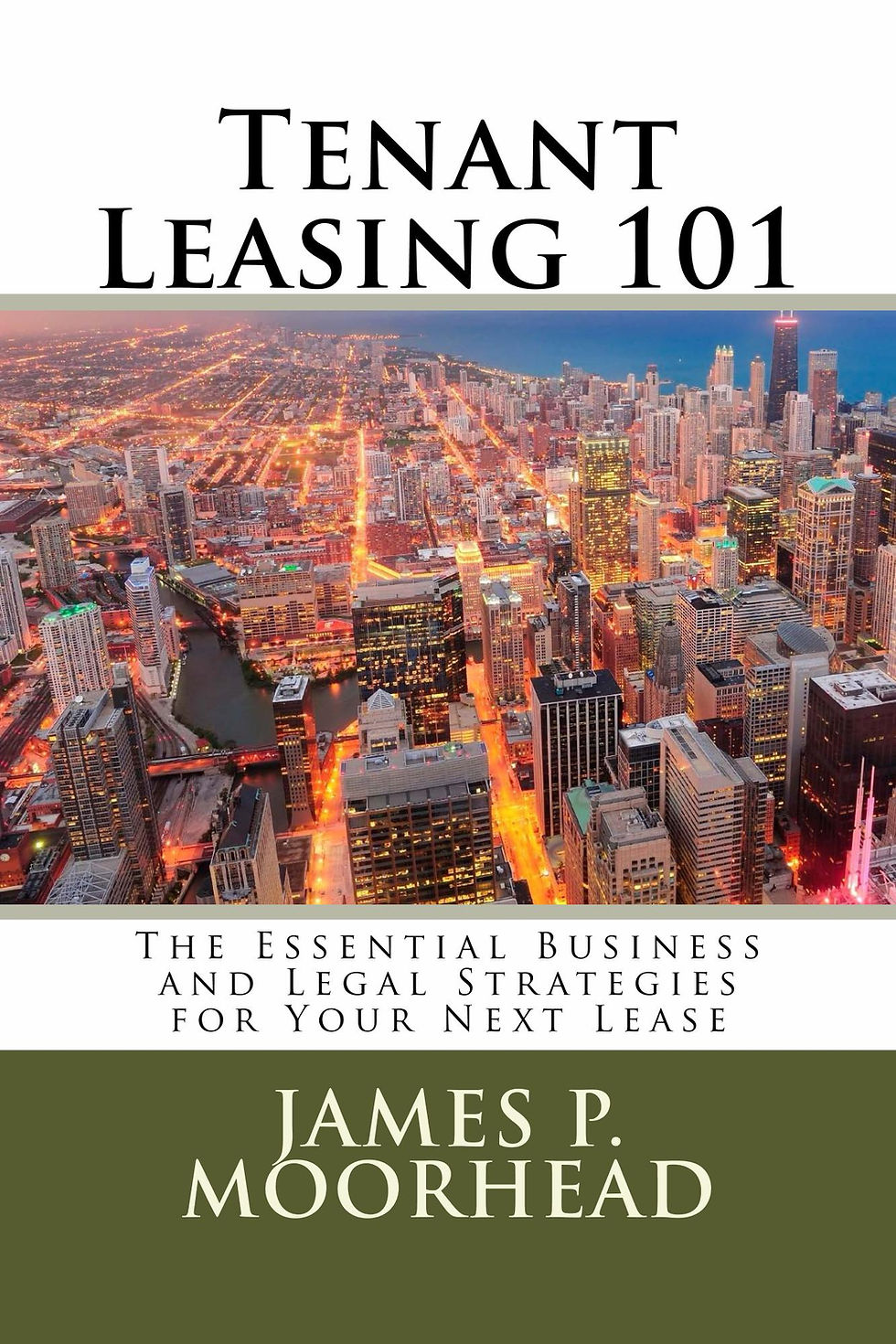Tenant Leasing 101: Exclusive Uses
- Jamie Moorhead
- Jul 10, 2015
- 2 min read

The following is an excerpt from Jamie Moorhead's new book, Tenant Leasing 101, now available in paperback and Kindle formats on Amazon here:
If having a competitor in the same retail center would be detrimental to the tenant’s business, the tenant could negotiate an exclusive use right into its lease for either the type of store or particular products.
The Exclusive Right
An exclusive use right essentially is a right to be the only tenant in the retail center that has the right to sell particular types of goods. For example, if the tenant sold pet supplies, it could secure an exclusive use right to be the only tenant in the center to sell pet supplies. This would prevent a competitor from leasing space in the same center and taking customer traffic and sales.
Clear But Inclusive
The exclusive use should be drafted with enough clarity to allow the tenant to have an unmistakable claim to the right to sell those specific goods. An exclusive right to sell ‘music’ is not particularly clear and could refer to musical instruments, audio equipment, or records and cd’s. The exclusive also should not be so specific that competitors could sell competitive goods. If a tenant is in the basket selling business and only secures an exclusive for the sale of wicker baskets, the tenant could lose sales to a competitor that sells non-wicker baskets.
Address Future Growth Plans
The tenant also needs to consider whether it will want an exclusive later in the lease term to sell things that it does not now sell. A tenant in the confectionary business might secure an exclusive to sell confectionaries. However, this tenant's five year business plan might also anticipate that the tenant will add gift cards and stationery to its business. This tenant may want to obtain an exclusive now for gift cards and stationery.
Will Time Render the Exclusive Useless?
An additional consideration is whether the exclusive use might become outdated by technological advancements. An exclusive to sell tape cassettes or even compact disks would not have much value in a new lease. The right to sell computers might not address all of the new technology that is being made, including tablets, iwatches, Google Glass. In this case, rather than having an exclusive right to sell just computers, the tenant might be better served with an exclusive right to sell computers, computer-related technology, and any computer-related products that may replace or otherwise be substituted for current computer products. In this way, the tenant can better protect itself against losing the value of its exclusive use right and having it rendered virtually useless before the lease ends...
For more, please visit Tenant Leasing 101 on Amazon here.
















